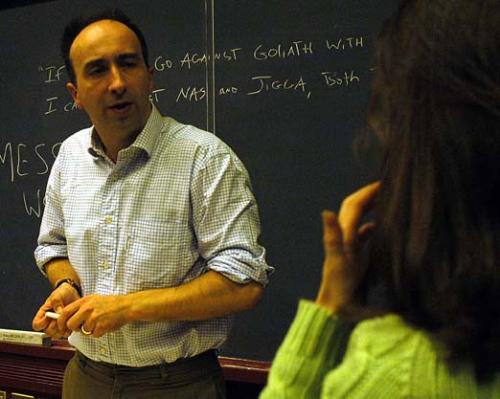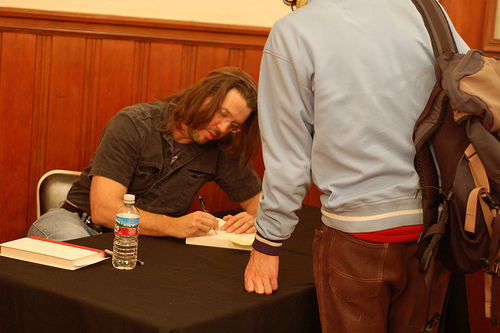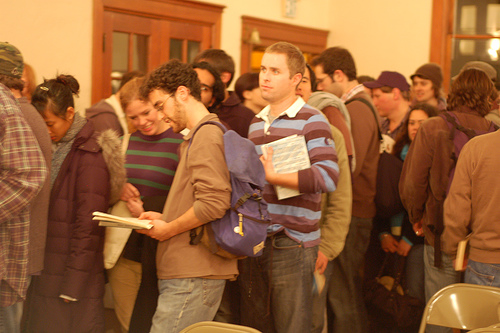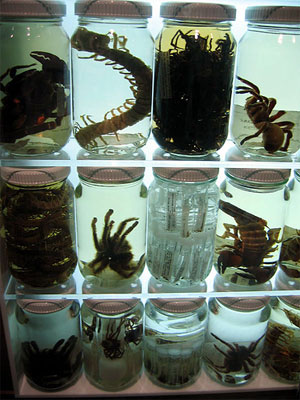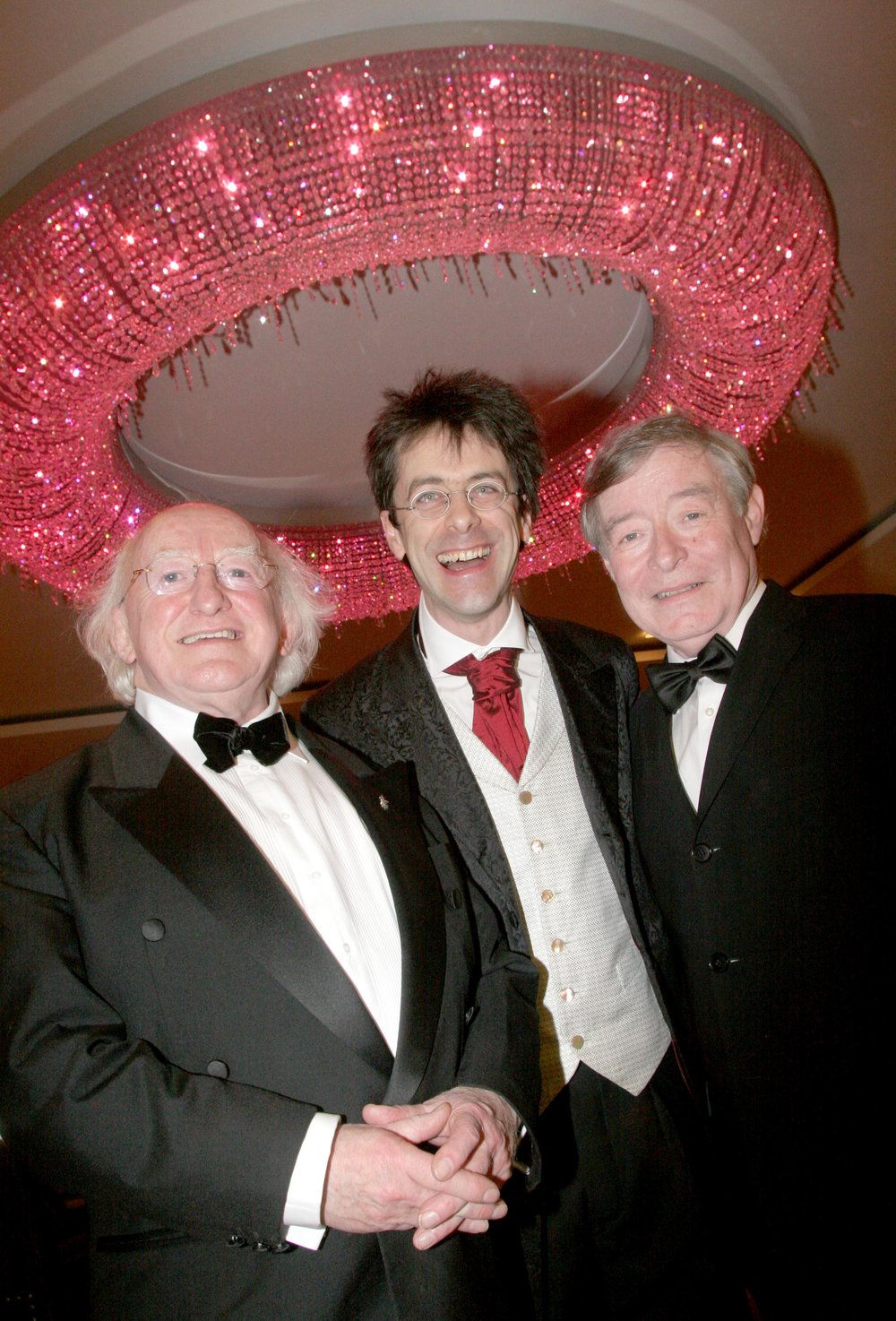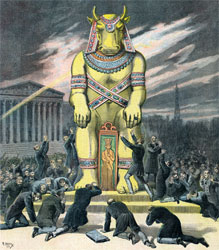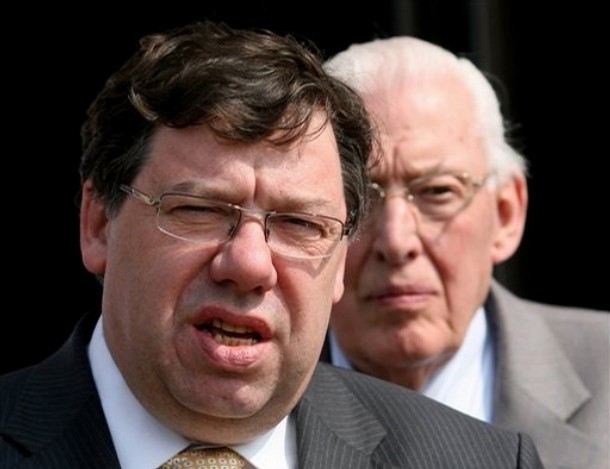The Great European Competition Hurdles - and they're off!
/
Ah, now, look, that's cheating. The Irish Government have robbed me of victory in the The Great Irish Bank Collapse Sweepstakes. And I'd put my last eleven euro on the favourite!
Here's the Irish Times, talking about the Irish Government's meeting in the early hours of Tuesday morning:
"The option of allowing one particular bank to fail and then moving to nationalise it was seriously considered, but it was decided that legislation to protect the entire banking system would have a better prospect of achieving long-term stability."
I'm pretty damn sure the bank was... well, I'm saying nothing. No point making things worse for them. (But, in one of those crazy coincidences no doubt, I got a huge number of hits over the past 48 hours from people who'd googled: anglo irish bank collapse.)
Incidentally, Anglo Irish shares soared 67% immediately after the announcement of the Irish Government scheme.
I'm still not entirely sure how a government as small as ours can "guarantee" the debts of a banking system as big as ours. As a number of helpful commentators have pointed out, the Taoiseach, Brian Cowen, and finance minister, Brian Lenihan, have just promised to back liabilities that are ten times greater than our national debt. And, though the two Brians have postponed the Great Irish Bank Collapse Sweepstakes, they still have the EU Competition Hurdles ahead of them. (The job of running Ireland is a veritable pentathlon lately.) The British (and others) are furious at this move, as it gives Irish banks a huge competitive advantage, and could suck money out of fragile English banks. (AIB have a big presence in the English business sector, Anglo Irish do a lot of UK property loans etc.)
And the English, Dutch, Belgians and Danes
all own banks in Ireland (Ulster Bank, ACC Bank, IIB Bank, and the
amusingly named National Irish Bank- it's Danish), which will not be
covered by this scheme, so they're afraid they'll lose all their
depositors to Allied Irish Bank, Bank of Ireland, and - God help us -
Anglo Irish Bank. There's now a strange, competitive, nationalist
element to bank bailouts in Europe, as each government bailout or
promise destabilises the banks of its neighbours. We need a unified EU
response. And in a pig's hole will we get one, not till a few really
big banks go under. Try getting twenty-two finance ministers to fly to
Brussels this week, when they're all up till 5am every night,
fire-fighting the collapse of their own national banks.
Of course, national banks have grown to become European banks, all over Europe. Many countries now face the problem of trying to save banks that are bigger than the country that, technically, controls and regulates them. The Financial Times has a beautiful overview of this. You'll see from it that both AIB and Bank of Ireland have liabilities that are almost exactly the same size as Ireland's entire GDP...
Well, on a lighter and more entertaining note, Momus has written a wonderful piece on the pleasures of having nothing. He did me the great honour of including some video of me in this intriguing meditation on Brecht, Wilde, and the end of the world as seen from Berlin.
We've been through all this before. It's not so bad. Nicht so schlimm..."There is no money in this town! The whole economy has broken down! Oh,
where is the telephone, is here no telephone, oh sir, goddamit, no!" - Brecht
...And here's the latest on the Great European Competition Hurdles, from the Irish Times twenty minutes ago. Will Brian Lenihan even make it over the first hurdle?
The European Commission (EC) today confirmed that Competition Commissioner Neelie Kroes is in contact with the Government and will examine under state aid laws the move to guarantee all deposits in Irish banks.
“It [the Commission] will look at any state aid involved as a a matter of urgency. It expects notification from the national authorities and will take decision under the state aid rules soon afterwards.”
And yes the British are very annoyed:
British banks compete with Irish banks both in Britain and in Ireland and have voiced fears they could lose out competitively to Irish banks that enjoy the full guarantee.
The Irish pledge on Tuesday to underwrite the country's banking system triggered a flood of cash from British businesses to Irish banks, a senior Irish stockbroker said.
"We just want the Irish government to look quite closely at the arrangements they are putting in place to make sure they comply with EU competition law," the British government spokesman said. He added Britain was in contact with Irish authorities at a high level over the issue.


